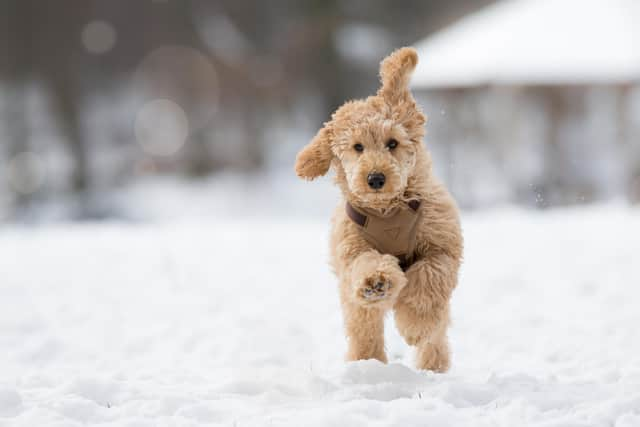Keeping your dog safe during cold weather... brrrr

Cold weather can be challenging for dogs, especially those that are not well-suited to colder temperatures. Here are some tips to help you keep your dog safe and comfortable during cold weather:
-
Know Your Dog's Limits:
- Different breeds have different tolerances for cold weather. Dogs with thick fur, like Huskies or Malamutes, may be more comfortable in colder temperatures than short-haired breeds. Older dogs and puppies are generally more vulnerable to extreme temperatures as they aren't able to regulate their own temperature.
-
Limit Outdoor Time:
- Limit the time your dog spends outdoors during extremely cold weather, especially if they are not accustomed to it. Bring them inside when the temperature drops significantly.
-
Protect Paws:
- Ice, snow, and salt can be harsh on your dog's paws. Wipe your dog's paws with a damp cloth after walks to remove any salt or ice-melting chemicals. Consider using dog booties to protect their paws from cold surfaces.
-
Provide Extra Bedding:
- Make sure your dog's bed is warm and cozy. Add extra blankets or a heated bed if needed. Elevated beds can also help keep your dog off cold tiled floors.
-
Keep Them Dry:
- Wet fur can make your dog more susceptible to cold. Dry your dog thoroughly after walks in the rain or snow. Consider using a doggy raincoat in wet weather.
-
Adjust Diet:
- In colder weather, dogs may burn more calories to stay warm. Consult your veterinarian about adjusting your dog's diet accordingly to ensure they are getting the right nutrients and calories.
-
Watch for Signs of Hypothermia:
- Be aware of signs of hypothermia, including shivering, lethargy, and shallow breathing. If you suspect your dog is experiencing hypothermia, seek veterinary attention immediately.
-
Avoid Frozen Bodies of Water:
- Keep your dog away from frozen lakes, ponds, or rivers, as the ice may not be thick enough to support their weight.
-
Regular Exercise:
- Even in cold weather, dogs need regular exercise. However, be mindful of the temperature and wind chill, and consider shorter walks or indoor play on extremely cold days.
Remember that individual dogs have different needs, so pay attention to your pet's behavior and adjust their care accordingly. If in doubt, consult with your veterinarian for personalized advice based on your dog's breed, age, and health.
